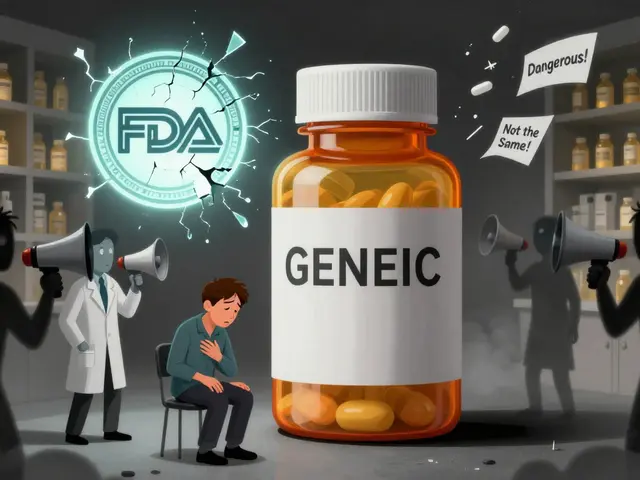Ancient Wisdom Meets Modern Medicine
Pellagra, willow bark, and licorice sound old-fashioned, but they shaped medicines we use today. This page collects practical ways to use traditional knowledge safely alongside modern prescriptions. You'll get clear rules for mixing remedies, where to look for trustworthy info, and how ancient herbs show up in articles on this site.
First rule: tell your healthcare provider about any herb, supplement, or traditional remedy you use. Some natural products boost or block drugs. For example, St. John's wort can make antidepressants or birth control less effective. Grapefruit and some blood pressure or cholesterol drugs interact badly, and licorice can raise blood pressure.
Not every old remedy works. Good studies separate fads from useful options. Low‑dose naltrexone, for instance, is modern pharmacology inspired by older ideas about immune modulation; Khella comes from herbal tradition but needs dosing and safety checks. Look for clinical trials or reliable reviews before swapping a prescription for a supplement.
How do you tell a solid study from a one-off claim? Check sample size, control groups, and whether doctors ran the trial. If lots of patients, multiple centers, and consistent results show benefit, the evidence is stronger. Short, small trials can hint at promise, but they don't replace established care.
Traditional approaches often shine in prevention, mild symptoms, or as add‑ons. For example, ginger may ease nausea, and certain teas can soothe sore throats. But for infections, heart disease, or serious conditions like lupus or hepatitis C, stick to proven drugs and specialist advice.
Combining safely
Follow a short checklist: 1) List everything you take. 2) Ask your pharmacist or prescriber about interactions. 3) Avoid doubling up on medicines that do the same job. 4) Watch for new symptoms after adding a supplement. 5) Stop and call your doctor if you feel worse.
Finding reliable sources
Trust professional sources: PubMed summaries, national health agencies, and major medical centers. Be cautious with online pharmacies—use verified sellers and don't buy prescription drugs without a real prescription. Our site covers safe buying tips and alternatives, but always confirm with your clinician.
Simple examples: garlic, ginkgo, and high doses of fish oil can thin blood and raise bleeding risk when taken with anticoagulants. Turmeric and high-dose vitamin E may do the same. If you use blood pressure meds like amlodipine or lisinopril, watch supplements that lower blood pressure too — symptoms like lightheadedness matter. When switching medications for conditions such as diabetes or depression, talk with your clinician before adding any herb.
Buying meds online requires care. Only use pharmacies that require a prescription and show contact details. Avoid deals that look too cheap or ask for payment by odd methods. If you see a site claiming miracle cures or selling controlled drugs without a prescription, close the tab. Our guides explain how to spot legit stores.
Transform Your Health with the Ancient Wisdom of Sweet Vernal Grass
Hey there, health enthusiasts! Get ready to embrace an ancient wisdom that's too grass-tastic to pass, the Sweet Vernal Grass. This unassuming green gem packs a punch of health benefits that could turn your life around. You thought spinach was the ultimate green? Think again! With Sweet Vernal Grass, it's like having a personal health guru guiding you to a life of vitality and wellness. It's not just a lawn ornament, folks, it's a powerhouse of health goodness. Welcome to the grass side, the healthier side!





